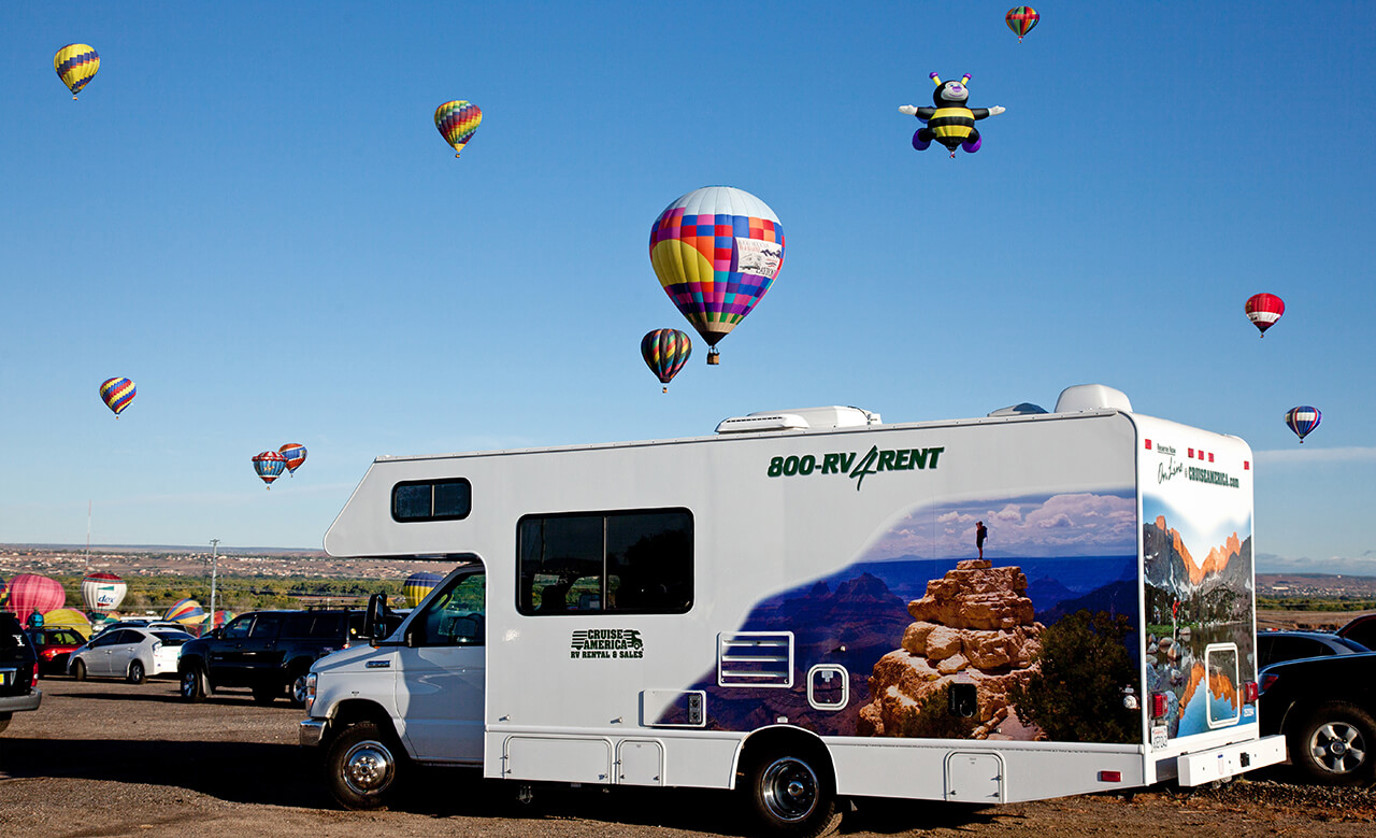
Is RV Long-Term Travel Right For You?
- RV Lifestyle
If you’ve ever daydreamed about trading your house keys for RV keys, you’re not alone. The idea of hitting the open road and making the entire country your backyard is appealing to more and more people every year. But before you sell the house and dive into full-time RVing, it’s worth asking: Is RV long-term travel right for you?
This guide will help you answer that question. We’ll explore the pros and cons of living on the road, the practicalities you need to think through, and insights from real RVers who’ve made the leap.
The Allure of Long-Term RV Travel
At its core, RV travel is about freedom. Unlike a traditional lifestyle tied to one location, an RV lets you wake up in the mountains today, at the beach tomorrow, and in a vibrant city the next week. For many, this mobility is life-changing.
Benefits of RV Travel:
-
Ultimate Flexibility
-
Work from Anywhere
-
Minimalist Living
-
Strong Community
Benefits of Going Full-Time
-
Ultimate Flexibility – You’re no longer bound by vacation days or short weekend getaways. The whole country becomes accessible.
-
Work from Anywhere – With remote work opportunities more abundant, many professionals take their laptops on the road. A mountain view can replace the cubicle.
-
Minimalist Lifestyle – Downsizing to fit into an RV forces you to live with less clutter, which many find liberating.
-
Strong Community – RV parks, rallies, and online groups foster connections with other travelers who share your adventurous spirit.
But with freedom comes responsibility and trade-offs.
The Challenges of Long-Term RV Living
While the Instagram photos look glamorous, the reality of RV life is more complex. Here are a few challenges to consider:
-
Downsizing Can Be Tough – If you’re attached to your stuff, condensing into a few hundred square feet may feel overwhelming.
-
Unpredictable Costs – While some expenses shrink (no property taxes or high utility bills), others pop up—like fuel, repairs, or RV park fees.
-
Maintenance – Your RV is your home and your vehicle. That means more upkeep, from oil changes to fixing leaks.
-
Limited Space – Even the biggest RVs can feel tight if you’re used to a house. Privacy can be tricky when traveling with a partner or family.
-
Internet Access – Remote work is possible, but not every campground has strong Wi-Fi. You may need mobile hotspots or satellite internet.
-
Learning Curve – Adapting to RV living comes with a learning curve. It takes time and practice to get comfortable with campground navigation, budgeting, and trip planning, but it becomes easier with experience and the right tools.
Practical Considerations Before You Go
If you’re still intrigued, the next step is to look at the practicalities. The RV purchase is a significant initial investment, so it’s important to carefully consider your options and budget as part of your planning.
Choosing the Right RV
Your rig is your home, so choosing wisely matters. When choosing an RV, consider your storage space needs for food, clothing, and equipment to ensure comfort and practicality. It's also important to compare gas mileage between different RV types, as fuel efficiency can impact your ongoing costs and overall budget.
Types of RVs
When it comes to full-time RV living, choosing the right type of RV is one of the most important decisions you’ll make. Each style of recreational vehicle offers a unique blend of comfort, mobility, and features to suit different lifestyles and travel goals.
-
Class A Motorhomes: These are the kings of the road, offering spacious interiors, luxury features, and plenty of storage. If you want a true home-on-wheels experience with all the comforts—think king bed, full bathroom, and a large RV kitchen—a Class A might be your best RV for extended stays or full time living.
-
Class B Campervans: Perfect for solo travelers or couples, these compact vans are easy to drive and park, making them ideal for those who value agility and simplicity. They’re a favorite among digital nomads and van life enthusiasts who want to explore without the hassle of a large rig.
-
Class C Motorhomes: Striking a balance between size and affordability, Class C RVs are great for families or anyone new to RV living. They offer a comfortable living space and are easier to maneuver than Class A models.
-
Travel Trailers: These towable RVs come in a wide range of sizes and floor plans, making them a versatile choice for many RVers. You can unhitch at your campsite and use your tow vehicle for local adventures, which is a big plus for those who like to explore.
-
Fifth Wheels: Known for their spacious layouts and residential feel, fifth wheels are a popular option for full time RV living. They require a pickup truck with a special hitch, but reward you with multiple slide-outs and a homey atmosphere.
-
Toy Haulers: If your RV lifestyle includes outdoor toys like ATVs or motorcycles, a toy hauler is worth considering. These RVs feature a built-in garage space, so you can bring your favorite gear along for the ride.
No matter which type of RV you choose, consider how much space you need, your camping style, and your travel plans. The right RV will make your journey comfortable and enjoyable, whether you’re embarking on an extended trip or embracing full time rving.
Budgeting for Long-Term Travel
A successful long-term RV lifestyle requires financial planning. Here’s what to budget for:
-
Fuel (varies by rig size and travel frequency)
-
Campground or RV park fees (ranges from free boondocking to $100+ per night in resorts; campsite fees are a major variable expense)
-
Insurance (for both your RV and health insurance coverage, which is especially important for full-time RVers)
-
Maintenance and repairs
-
Food and groceries (food costs are a key budget item—while similar to home, eating out often adds up, but preparing meals in your RV can help reduce expenses)
-
Connectivity (mobile hotspot plans, satellite internet)
-
RV depreciation (the value of your RV decreases over time, impacting the overall cost of ownership)
Some RVers live on less than $2,000 a month, while others spend $5,000 or more depending on travel style.
Where to Stay
-
Campgrounds and RV Parks – Offer hookups, amenities, and social opportunities. Private campgrounds often provide additional amenities like pools, laundry facilities, and dog parks, making them attractive for travelers seeking comfort and convenience compared to public options.
-
State and National Parks – Affordable and scenic, with state parks offering accessible and budget-friendly camping experiences. Campground reservations are important to secure a spot, especially during peak seasons, as availability can be limited.
-
Boondocking (Dry Camping) – Free camping on public lands, ideal for those who enjoy solitude and self-sufficiency. Parking lots, such as those at some retail stores, can also serve as convenient overnight options when boondocking or in transit.
-
Long-Term Stays – Some RV parks offer monthly rates, which can save money and create a home-base feel. Stay length can impact rates and availability, so planning ahead is recommended.
RV Memberships & Campgrounds
One of the best ways to save money and enhance your RV lifestyle is by joining RV memberships and choosing the right campgrounds. Many RV parks and campgrounds offer membership programs that unlock discounts, perks, and even access to exclusive RV campsites.
Popular memberships like Passport America, Good Sam, and Harvest Hosts can help you cut down on campground fees, making full time RV living more affordable. Passport America, for example, offers 50% off at many RV parks across the country, while Harvest Hosts lets you stay overnight at unique locations like wineries, farms, and golf courses.
Route Planning & Navigation
A successful RV journey starts with smart route planning and reliable navigation. Unlike a regular road trip, RV life comes with unique challenges—think low bridges, narrow roads, and finding the right parking spot for your rig.
Investing in a dedicated RV GPS—like the Garmin RV 795 GPS Navigator—can make a world of difference. These devices are designed specifically for RVs, helping you avoid routes that aren’t suitable for your vehicle’s size and weight. Pair this with online tools like Google Maps and RV LIFE Trip Wizard to map out your travel plans, estimate drive times, and locate RV-friendly stops along the way.
Don’t forget to factor in fuel costs and rest stops. Apps like GasBuddy and Upside can help you find the best gas prices and even earn cash back, which is especially helpful on long distances. Always check road conditions, weather forecasts, and traffic updates before hitting the road to ensure a smooth and safe RV journey.
By taking the time to plan your routes and using the right navigation tools, you’ll save time, reduce stress, and make the most of every mile on your RV adventure.
Maintenance & Repairs
Keeping your RV in top shape is key to enjoying a worry-free RV lifestyle. Regular maintenance not only extends the life of your RV but also helps you avoid unexpected breakdowns that can disrupt your travel plans.
Start by learning the basics: check your tire pressure, oil, and fluids regularly, and inspect your RV for leaks or wear and tear. Staying on top of these simple tasks can prevent bigger, more expensive problems down the road. It’s also wise to invest in a good RV warranty or consider an extended warranty for extra peace of mind.
When repairs are needed, seek out certified RV technicians or mobile mechanics who can come to your location. Many full time RVers keep a well-stocked toolbox and essential spare parts on hand for minor fixes, which can save time and money in a pinch.
By prioritizing maintenance and being prepared for repairs, you’ll spend less time worrying and more time enjoying the freedom and adventure that RV living has to offer.
Stories from the Road
To get a sense of what full-time RV living really looks like, here are a few common themes shared by long-term travelers and full timers:
-
The Unexpected Joys – Many full-time RVers and full timers say the best part isn’t just the scenery, but the small, unexpected moments—like stumbling upon a small-town festival or watching the stars in total darkness.
-
Challenges That Teach Resilience – A breakdown in the desert, a power outage at a campground, or managing extended camping stays off the grid can feel stressful. Reliable power sources, such as generators and solar panels, become essential for those camping multiple days without hookups, but most RVers look back on these moments as confidence-building.
-
Community Matters – From caravaning with friends to connecting on social media, RVers rarely feel alone for long. Participating in local community events, such as parades, free concerts, and farmers markets, is a great way to connect with others while traveling.
Tips for Transitioning to Long-Term RV Living
If you’re considering taking the plunge, here are some tips to make the shift smoother:
-
Start Small – Try extended trips before selling your home. Rent an RV for a month to see how it feels.
-
Practice Downsizing – Begin decluttering months in advance. If you don’t use it at home, you won’t need it on the road.
-
Stay Flexible – Plans will change due to weather, road closures, or personal preferences. Embrace adaptability.
-
Invest in Connectivity – A mobile hotspot or Starlink satellite system can be a lifeline if you’re working remotely.
-
Join RV Communities – Online forums, Facebook groups, and in-person meetups offer advice and friendship.
Pros and Cons at a Glance
Pros
-
Freedom to travel anywhere
-
Flexible work/life balance
-
Strong community of like-minded travelers
-
Minimalist lifestyle encourages simplicity
-
Ability to relocate to warmer climates to avoid cold weather
Cons
-
Space limitations
-
Ongoing maintenance
-
Unpredictable expenses
-
Possible challenges with connectivity and healthcare
-
Unique challenges and rewards of living in an RV full time
Is Long-Term RV Travel Right for You?
So, how do you know if the RV lifestyle is your next chapter? Ask yourself these questions:
-
Do I value experiences over possessions?
-
Am I adaptable and comfortable with uncertainty?
-
Can I balance work and travel on the road?
-
Do I enjoy problem-solving when challenges arise?
-
Am I excited by the idea of constant exploration?
-
Have I considered the needs of each family member when planning for space and legal arrangements?
If you answered “yes” to most of these, RV long-term travel might be a perfect fit.
Start Your Journey with Cruise America
RV long-term travel isn’t for everyone, but for those who embrace it, the rewards can be immense. It’s not just a way of seeing the country—it’s a way of living that redefines home, freedom, and adventure.
Whether you’re drawn to the mountains of Colorado, the beaches of Florida, the warmth of the Florida Keys, or the wide-open desert skies of Arizona, an RV puts you in control of your journey.
If you’re ready to test the waters, consider starting with a Cruise America RV rental. You’ll get a taste of life on the road, with the flexibility to try it out before committing.
Because sometimes the only way to know if RV living is right for you…is to turn the key and find out.





